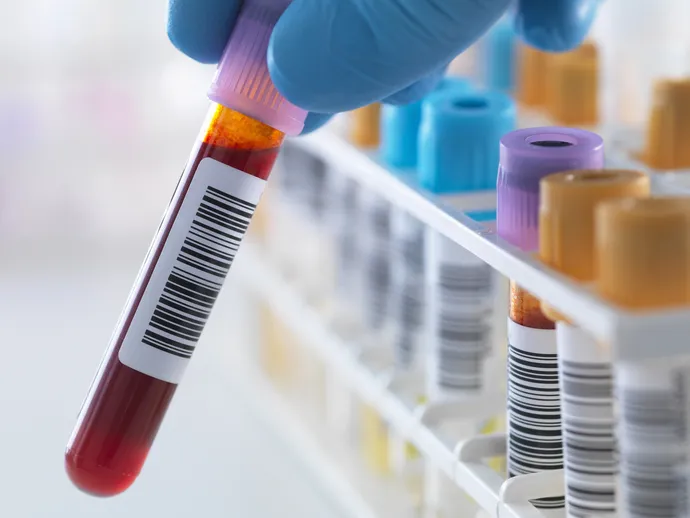Last updated on 16th Oct 2021 - By Dwayne Michaels
How Abnormal FASTING BLOOD SUGAR affects heart?
A higher-than-normal blood sugar level puts you at risk for developing diabetes and heart disease.

A heart attack occurs when an artery that provides blood to the heart is blocked.
High blood sugar at the time of a heart attack could make this blockage more severe by causing the artery to contract, resulting in a higher risk of complications, according to the research team at the University of Leicester in England.
But before proceeding further let us first know a little about Blood sugar. Blood glucose is a sugar that the bloodstream carries to all cells in the body to supply energy. A person needs to keep blood sugar levels within a safe range to minimize the chances of diabetes and other common diseases.
High blood sugar
If blood sugar levels remain too high the body suppresses appetite over the short term. Long-term High blood sugar causes many health problems including heart disease, cancer, eye, kidney, and nerve damage.
Blood sugar levels above 300 mg/dL can cause fatal reactions. Ketones will be very high initiating ketoacidosis. The Mayo Clinic recommends emergency room treatment above 300 mg/dL blood glucose.
The most common cause of hyperglycemia is diabetes. When diabetes is the cause, physicians typically recommend an anti-diabetic medication as treatment.
From the perspective of the majority of patients, treatment with an old, well-understood diabetes drug such as metformin will be the safest, most effective, least expensive, and most comfortable route to managing the condition. Diet changes and exercise implementation may also be part of a treatment plan for diabetes.
Also Read : Symptoms of Abnormal fasting blood sugar
In humans, a blood glucose level of about a teaspoon, is critical for normal function in a number of tissues, and the human brain consumes approximately 60% of blood glucose in fasting, sedentary individuals.
A persistent elevation in blood glucose leads to glucose toxicity, which contributes to cell dysfunction and the pathology grouped together as complications of diabetes. Glucose can be transported from the intestines or liver to other tissues in the body via the bloodstream.

Cellular glucose uptake is primarily regulated by insulin, a hormone produced in the pancreas
Low blood sugar
If blood sugar levels drop too low, a potentially fatal condition called hypoglycemia develops. Symptoms may include lethargy, impaired mental functioning; irritability; shaking, twitching, weakness in arm and leg muscles; pale complexion; sweating; loss of consciousness.
Mechanisms that restore satisfactory blood glucose levels after extreme hypoglycemia must be quick and effective to prevent extremely serious consequences of insufficient glucose: confusion or unsteadiness and, in the extreme loss of consciousness and seizures.
Did you know? Not getting enough sleep is linked to Heart attack, Depression, High Blood Pressure, Obesity and Diabetes.

Also Read : What can cause inaccurate blood test results?
Without discounting the potentially quite serious conditions and risks due to or oftentimes accompanying hyperglycemia, especially in the long-term, it is still generally more dangerous to have too little glucose – especially if levels are very low – in the blood than too much, at least temporarily, because glucose is so important for metabolism and nutrition and the proper functioning of the body's organs.
This is especially the case for those organs that are metabolically active or that require a constant, regulated supply of blood sugar.
In healthy individuals, blood glucose-regulating mechanisms are generally quite effective, and symptomatic hypoglycemia is generally found only in diabetics using insulin or other pharmacological treatment, and in starvation or severe malnutrition or malabsorption, and conditions such as anorexia.
Hypoglycemic episodes can vary greatly between persons and from time to time, both in severity and swiftness of onset. For severe cases, prompt medical assistance is essential, as damage to brain and other tissues and even death will result from sufficiently low blood-glucose levels.

Does drinking water before blood test affect results?
Certain blood tests require fasting beforehand. Fasting before certain blood tests is important to help make sure that your test results are accurate. Read on to learn more about the effects of water on blood test results.
Know more
What can cause inaccurate blood test results?
Several factors can affect blood test results. Read on to know the top reasons which can lead to inaccurate blood test results.
Read more
Painful health problems of famous celebrities
Read on to know chronic illnesses of top celebrities
Know more